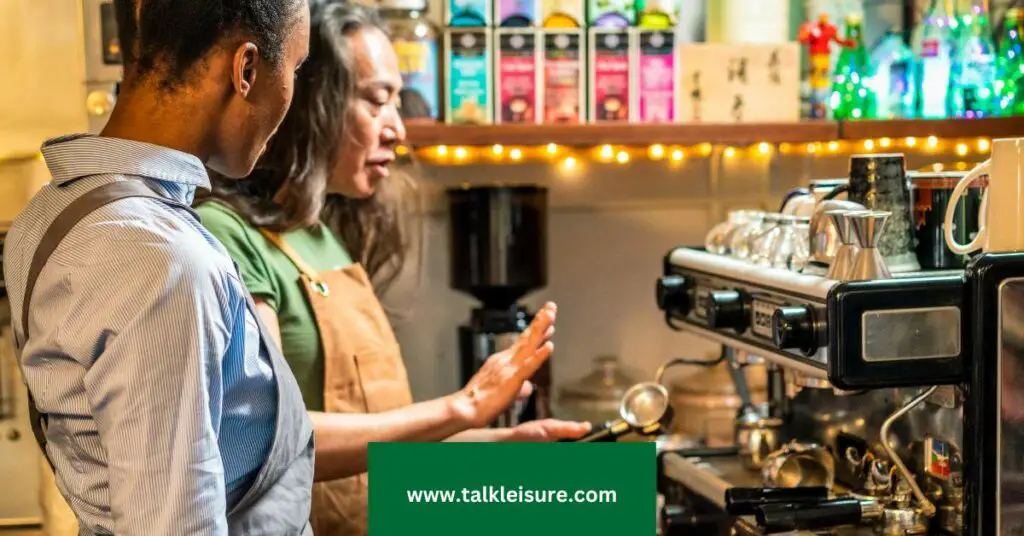Starbucks, the world’s largest coffeehouse chain, is renowned for its high-quality coffee and exceptional customer service. The brand has a massive presence worldwide, with over 32,000 stores in 83 countries.
Starbucks is also known for providing numerous job opportunities, with many individuals pursuing careers as baristas. These skilled coffee makers craft a wide variety of espresso-based beverages, ensuring that each cup is brewed to perfection.
With the chain’s massive expansion, many individuals may wonder just how many baristas work at Starbucks. In this blog post, we’ll delve into this question and explore the exciting world of Starbucks baristas.
Understanding the Role of a Starbucks Barista: Key Responsibilities and Skills of Starbucks Employees
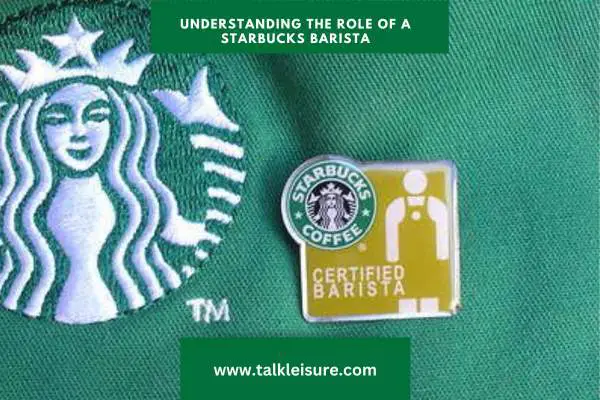
As the face of the world’s largest coffeehouse chain, Starbucks baristas play a critical role in ensuring the success of the brand.
These skilled coffee makers are responsible for creating an array of espresso-based beverages, ranging from classic cappuccinos to the latest seasonal creations.
Starbucks baristas must also possess excellent customer service skills, as they are often the first point of contact for customers.
In this section, we’ll delve deeper into the role of a Starbucks barista and explore the skills required to excel in this position.
Starbucks Employment Statistics: How Many Baristas Work at Starbucks?
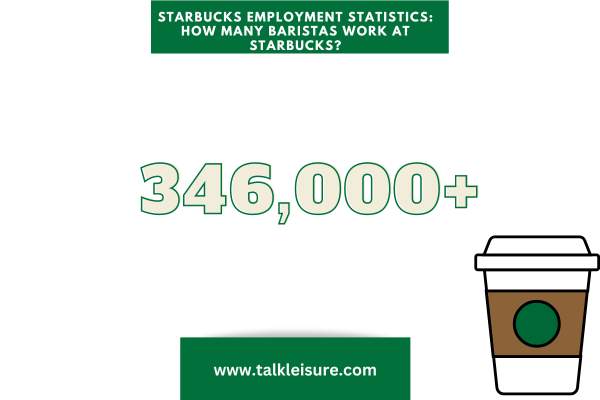
Starbucks is one of the largest employers in the United States, with over 346,000 employees as of 2021.
While the company does not release specific figures on the number of baristas it employs, it’s estimated that baristas make up a significant portion of Starbucks’ workforce.
According to a report by Statista, in 2019, there were approximately 157,000 Starbucks employees in the United States who were classified as “baristas.”
However, this figure includes both full-time and part-time baristas, as well as shift supervisors who also perform barista duties.
With Starbucks’ continued growth, it’s likely that the number of baristas employed by the company has increased significantly in recent years.
What Qualifications Are Required to Work as a Starbucks Barista?
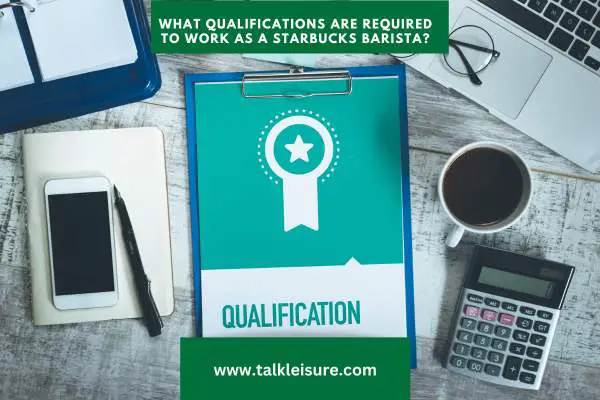
To work as a Starbucks barista, there are no formal educational requirements. However, the company does have specific qualifications that candidates must meet. These qualifications include:
- Age: Starbucks requires all baristas to be at least 16 years old.
- Customer service skills: Excellent customer service skills are a must for all Starbucks baristas. They must be able to engage with customers, provide exceptional service, and handle customer complaints effectively.
- Availability: Starbucks requires baristas to have flexible availability, including weekends and holidays.
- Physical requirements: Baristas must be able to stand for long periods, lift up to 30 pounds, and work in a fast-paced environment.
- Communication skills: Strong communication skills are essential for effective teamwork and ensuring that customers’ orders are prepared correctly.
- Passion for coffee: Starbucks is passionate about coffee, and they look for baristas who share that passion. Prior knowledge of coffee is not required, but a willingness to learn and develop one’s skills is essential.
Overall, Starbucks seeks individuals who are friendly, outgoing, and have a positive attitude towards customer service. Aspiring baristas can apply online or in-person at their local Starbucks store.
The Benefits of Working as a Starbucks Barista: Perks of Joining the Starbucks Company
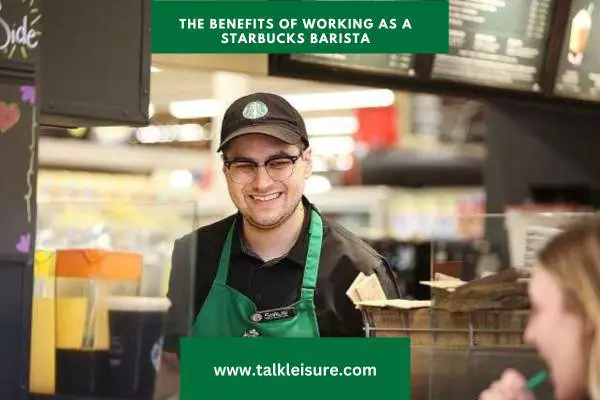
Working as a Starbucks barista has several benefits. Firstly, Starbucks offers a comprehensive benefits package to all of its employees, including part-time workers. The package includes health, dental, and vision insurance, retirement benefits, stock options, and more.
Secondly, Starbucks employees receive a 30% discount on all food and beverages, as well as merchandise sold in-store.
Thirdly, Starbucks is known for its flexible scheduling, which is ideal for students or individuals with other obligations.
Baristas can work full-time or part-time and have the ability to swap shifts with coworkers.
Fourthly, Starbucks encourages career growth and development for its employees.
Baristas can advance to supervisory roles or pursue careers in other areas of the company, such as management, marketing, or human resources.
Fifthly, Starbucks provides comprehensive training to all of its employees, including baristas.
This training includes hands-on instruction, online courses, and access to the Starbucks Coffee Academy.
Lastly, Starbucks values its employees and strives to create a positive work environment.
Baristas work with a supportive team, and the company has a strong commitment to corporate social responsibility.
The Future of the Barista Profession in Starbucks

The future of the barista profession at Starbucks is expected to be shaped by several trends.
To begin with, Starbucks is probably going to keep implementing automation into their stores to speed up the coffee-making process and free up baristas to work more closely with customers.
Second, Starbucks may create specialist barista roles in response to the increased demand from customers for more individualized coffee products.
This is because specialty coffee is becoming more popular.
This would require baristas to have more in-depth knowledge of different brewing methods, coffee origins, and flavor profiles.
Thirdly, Starbucks has made a commitment to becoming a more sustainable company, and in the future, we can expect baristas to receive more training on sustainable practices such as coffee sourcing, waste reduction, and energy conservation.
Fourthly, Starbucks has already introduced mobile ordering and payment options in their stores, and this trend is expected to continue with more technology being integrated into the barista profession, such as augmented reality to show customers different coffee blends available.
Lastly, Starbucks has always prioritized the customer experience, and this trend is expected to continue.
Baristas may receive more training on how to engage with customers, provide personalized service, and create a welcoming atmosphere in the store.
Overall, the future of the barista profession at Starbucks looks promising, with skilled baristas who are knowledgeable about the industry and committed to providing exceptional customer service.
Conclusion

In conclusion, working as a Starbucks barista can be a rewarding experience, with benefits such as comprehensive health insurance, flexible scheduling, and career growth opportunities.
As the coffee industry continues to evolve, the barista profession at Starbucks is expected to change as well, with trends such as automation, specialization, sustainability, technology integration, and a continued focus on customer experience.
However, despite these changes, Starbucks remains committed to providing a positive work environment for its employees and exceptional service to its customers.
The future of the barista profession at Starbucks looks promising, with skilled and knowledgeable baristas who are dedicated to providing high-quality coffee and creating a welcoming atmosphere in the stores.
FAQS
Q: What kind of training do Starbucks baristas receive?
Baristas receive comprehensive training, including hands-on instruction, online courses, and access to the Starbucks Coffee Academy.
Q: What are the qualifications required to work as a Starbucks barista?
No formal qualifications are required, but applicants should have excellent customer service skills, be able to work in a fast-paced environment, and be able to communicate effectively.
Q: What is the future of the barista profession at Starbucks?
The profession is expected to evolve with trends such as increased automation, specialization, sustainability, technology integration, and a continued focus on customer experience. However, Starbucks remains committed to providing a positive work environment and exceptional service to customers.
Q: How many baristas work at Starbucks?
A: The exact number of baristas working at Starbucks is difficult to determine as it fluctuates based on factors such as location, store size, and time of year. However, Starbucks is known to employ thousands of baristas worldwide.
Q: What is the average number of baristas per Starbucks location?
A: The average number of baristas per Starbucks location can vary depending on various factors such as the size and the volume of customers at each location. However, on average, a Starbucks store may employ around 10 to 20 baristas.
Q: How much do baristas at Starbucks earn?
A: The hourly rate for baristas at Starbucks varies depending on factors such as location and experience. According to data from various sources, baristas at Starbucks can earn an average of $9 to $15 per hour.
Q: Does Starbucks offer any additional benefits or perks to its baristas?
A: Yes, Starbucks provides various benefits and perks to its employees, including baristas. These benefits may include healthcare coverage, retirement savings plans, stock options, paid vacation, and tuition reimbursement.
Q: How many employees did Starbucks have in 2022?
A: The total number of employees at Starbucks in 2022 is not publicly available at the moment. However, Starbucks is a large multinational company with thousands of employees worldwide.
Q: How many employees did Starbucks have in 2020?
A: As of 2020, Starbucks had around 349,000 employees worldwide. This includes not only baristas but also various other roles within the company.
Q: How does Starbucks compare to other companies in terms of the number of employees?
A: Starbucks is one of the largest coffee chains in the world, and its number of employees reflects its global presence. Among the foodservice and retail companies, Starbucks is consistently ranked among the top employers in terms of total number of employees.
Q: Do baristas at Starbucks need to have any qualifications or specific licenses?
A: Baristas at Starbucks do not necessarily need any formal qualifications or specific licenses to start working. However, having prior experience in the foodservice industry or knowledge in coffee preparation can be advantageous during the hiring process.
Q: How many Starbucks locations are there in the United Kingdom?
A: As of the latest available data, there are over 1,000 Starbucks locations in the United Kingdom. These locations are both company-operated and licensed stores.
Q: What is the revenue of Starbucks in the United Kingdom?
A: The exact revenue of Starbucks in the United Kingdom is not publicly disclosed. However, Starbucks is a globally recognized coffee retailer, and its operations in the United Kingdom contribute to its overall revenue.









